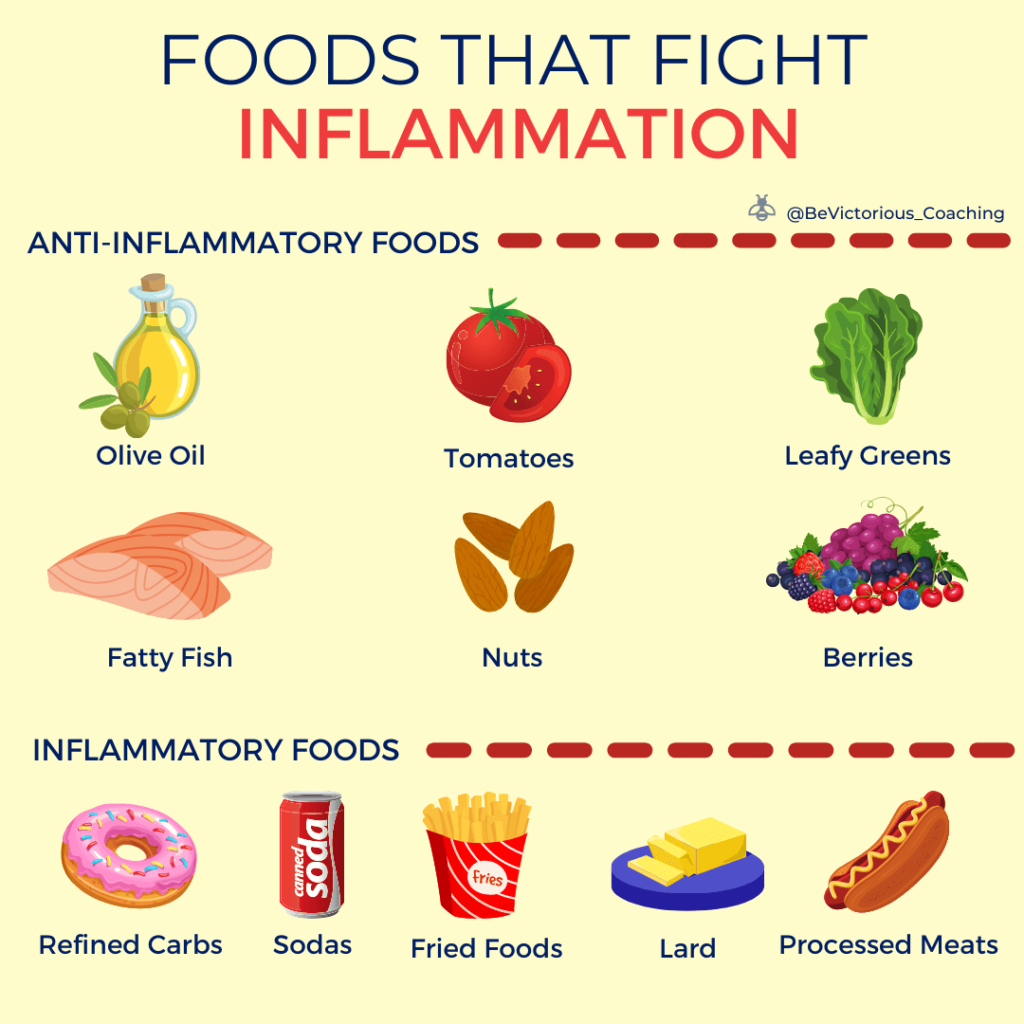What are Anti-Inflammatory Foods?
Do you know that doctors are currently researching that one of the best techniques to lower inflammation is not found on the medicine shelf, but in the refrigerator?
An anti-inflammatory food focuses on fresh fruits and veggies. Many plant-based foods are good sources of antioxidants. Anti-inflammatory food is food that can fight off inflammation.
An anti-inflammatory food favors meals that are loaded with antioxidants over those that increase the production of free radicals. Free radicals can lead to cell damage. This damage increases the chance of inflammation and can lead to other kinds of diseases.
However, it is important to note Inflammation aid the body in fighting illness and can protect it from harm. In several cases, it is a necessary part of the healing process.
Although some people have a medical condition in which the immune system does not work as it should. This malfunction can lead to persistent or recurrent low-level Inflammation

Foods that can cause inflammation
Try to avoid or limit these foods as much as possible:
- Processed carbohydrates, such as white bread and pastries
- Processed Snacks and other fried foods
- Gaseous drinks such as soda and other sugar-sweetened beverages
- Red meat (burgers, steaks) and meat (hot dogs, sausage)
- Foods with added refined sugar or salt
- Unhealthful oils
- Excessive alcohol intake
These meals that can cause inflammation are generally considered bad for our health, including sodas and refined carbohydrates, as well as red meat and processed meats.
Dr. Hu from Harvard Medical School says “Some of the food components or ingredients may have independent effects on inflammation over and above the increased caloric intake,”
Unhealthy foods can also contribute to weight gain, which is itself a risk factor for inflammation. Yet in several studies, even after researchers took obesity into account, the link between foods and inflammation remained, which suggests weight gain isn’t the sole driver. – Harvard Medical School
What Foods to Eat?
Consuming an anti-inflammatory food should combine a variety of foods that:
- are rich in nutrients
- provide a range of antioxidants
- contain healthful fats
Foods that can manage inflammation include:
- oily fish, such as tuna and salmon
- fruits, such as blueberries, blackberries, strawberries, and cherries
- vegetables, including kale, spinach, and broccoli
- beans
- nuts and seeds
- olives and olive oil
- fiber
Some researchers from 2017 recommended the following:
- Fresh or moderately cooked vegetables
- Legumes, such as lentils
- Spices, such as ginger and turmeric
- probiotics and prebiotics
- tea
- some herbs
Perks of anti-inflammatory foods
Anti-inflammatory diet
To reduce levels of inflammation, reach out for an overall healthy diet. If you are looking for an eating plan that closely follows the tenets of anti-inflammatory eating, consider the Mediterranean diet, which is high in fruits, vegetables, nuts, whole grains, fish, and healthy oils.
In addition to lowering inflammation, a more natural, less processed diet can have noticeable effects on your physical and emotional health. “A healthy diet is beneficial not only for reducing the risk of chronic diseases, but also for improving mood and overall quality of life,” Dr. Hu says.
Anti-inflammatory food perk
It can be challenging to transition to a new way of eating, but the following tips may help:
- Pick up a variety of fruits, vegetables, and healthful snacks during the weekly shop.
- Slowly and intentionally replace fast-food meals with healthful, homemade lunches.
- Replace soda and other sugary beverages with still or sparkling mineral water.
Other tips include:
- Talking to a healthcare professional about supplements, such as cod liver oil or a multivitamin.
- Incorporating 30 minutes of moderate exercise into the daily routine.
- Practicing good sleep hygiene, as poor sleep can worsen [1] inflammation.
Disclaimer: The above information published in this article is solely for informational and educational purposes only. The article written/published does not intend to diagnose, treat or cure any disease and should not be treated as medical advice. Seek the direction of your doctor before any consumption!
Sharing is Caring!






